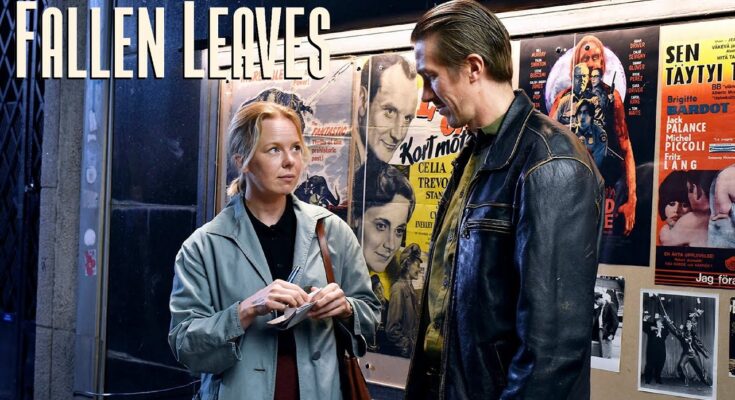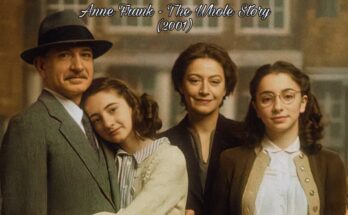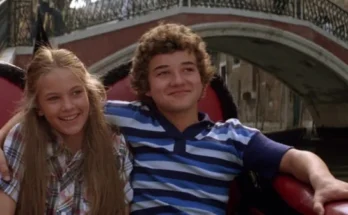Genre: Historical Drama | War | Coming-of-Age | Literary Adaptation
The Book Thief, released in 2013 and adapted from Markus Zusak’s bestselling novel, is a tender, moving drama that explores the power of words and stories to keep hope alive during one of history’s darkest chapters. Directed by Brian Percival, the film unfolds with a gentle melancholy, telling a story about innocence and resilience in the shadow of Nazi Germany.
Set during World War II, The Book Thief introduces us to Liesel Meminger (played with luminous warmth by Sophie Nélisse), a young girl sent to live with foster parents, Hans (Geoffrey Rush) and Rosa Hubermann (Emily Watson), in a small German town. Liesel arrives barely able to read, but when she steals her first book—a gravedigger’s manual—her love affair with words is sparked.
Her gentle, accordion-playing foster father Hans becomes her teacher and protector, reading with her late at night in the cellar as bombs fall from the sky. Meanwhile, Rosa’s gruff exterior hides a deep loyalty and fierce love that slowly reveals itself in her hard-edged tenderness.
As Nazi propaganda fills the streets, Liesel finds escape and power in the books she “borrows”—sometimes from bonfires, sometimes from the mayor’s wife’s library. Her secret world of words becomes an act of defiance, a quiet rebellion against the terror around her.
When the Hubermanns take in Max (Ben Schnetzer), a young Jewish man hiding from the Nazis, Liesel’s secret world expands even further. Max and Liesel bond over stories and dreams scribbled on painted-over pages, creating tales of hope that help them survive the constant threat of discovery.
Narrated by Death (voiced with haunting calm by Roger Allam), the film retains the novel’s bittersweet tone—a reminder that even as it celebrates the beauty of words and stories, it does not shy away from the harsh reality of war, loss, and the cruelty of the time.
The Book Thief moves at a gentle, almost storybook pace, carried by Sophie Nélisse’s quietly powerful performance and the heartfelt chemistry between the main cast. Geoffrey Rush brings warmth and gentle humor to Hans, while Emily Watson’s Rosa is a wonderful balance of sternness and hard-won affection.
Visually, the film balances warmth and cold—a small German village painted in soft winter hues, the vibrant colors of stolen books, the somber grays of war. John Williams’ score adds a lyrical, emotional undercurrent that matches the film’s tone of innocence shadowed by tragedy.
Some critics found the film’s approach too soft compared to the stark horror of its setting, but for many, The Book Thief remains an accessible, deeply human introduction to the power of storytelling in times of crisis. It is a reminder that even in the darkest moments, words can heal, comfort, and resist.
A gentle but poignant tribute to the way books can save us—one stolen page at a time—The Book Thief is a story for those who believe that even small acts of courage and kindness can echo through history.



